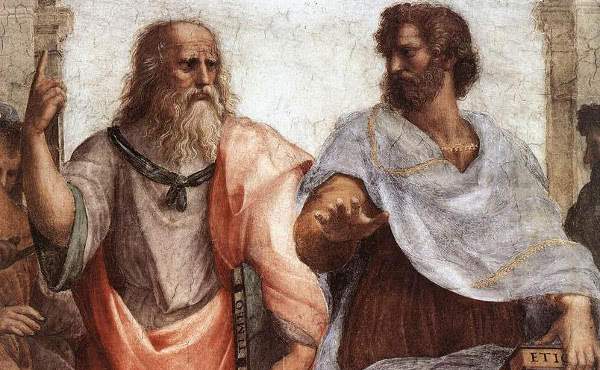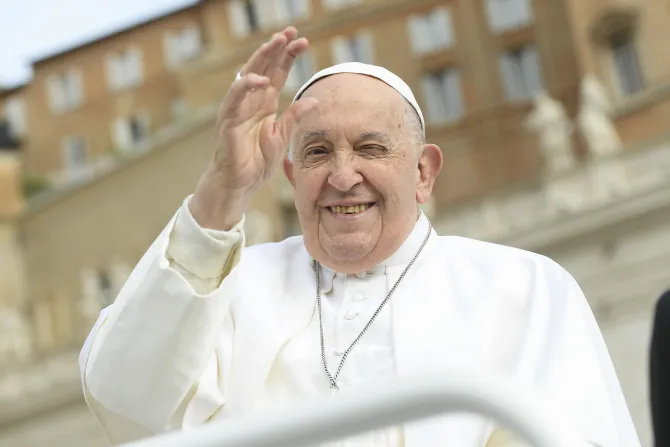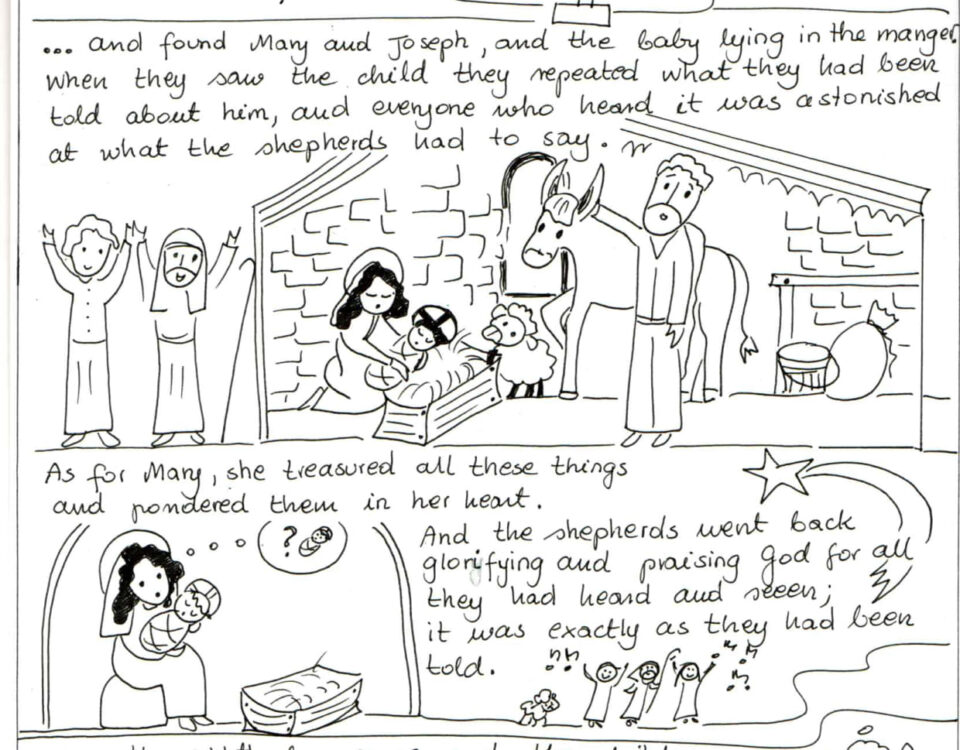Divine Retreat Centre UK – Official Website
When your laborious efforts seem wasted
January 27, 2023“On Loving God”
January 27, 2023It’s 2023; a new year. Even though there had been 2,022 new years that had been welcomed in the past, we still acted as though the 2,023rd year is something new, something better, something different, and something exciting. But what exactly is new about it? What exactly is new about time? Time, as we know from Genesis, began with God. God created time on the first day of creation when he said, “Let there be light”. “God called the light Day, and the darkness he called Night. And there was evening and there was morning, the first day” (Genesis 1:5).
This light, which marked the beginning of time, will be taking on a whole new meaning—a whole new face—in the course of the history of salvation. This light, in the fullness of time, will reveal itself to represent Jesus Christ. “For it is the God who said, “Let light shine out of darkness,” who has shone in our hearts to give the light of the knowledge of the glory of God in the face of Jesus Christ” (2 Corinthians 4:6). In his time and in his light, we will also find life. “He was in the beginning with God. All things came into being through him, and without him not one thing came into being. What has come into being in him was life, and the life was the light of all people” (John 1:2).
In his “time”, that is, the Messianic era which held so much promise. All these promises were written down by the Lord’s prophets who were inspired by the Word of God. They revealed the Lord’s will to the people in order for the people to conform to the will of the Lord. See, the one, true and living God reveals his will to the people. He said, “I did not speak in secret, in a land of darkness; I did not say to the offspring of Jacob, “Seek me in chaos.” I the Lord speak the truth, I declare what is right” (Isaiah 45:19). He speaks to us so that we may find the meaning of our existence in relation to him and, ultimately, to witness the fulfillment of all the words he had spoken in time.
Time, in the bible, is divided into two—the Mosaic time (the time of Moses) and the Messianic time (the time of the Messiah). The time of the Messiah began upon his coming into the flesh, his birth, or his incarnation. The first witness of this glorious event in salvation history was a very lowly/humble woman of Nazareth—Mary. “The angel said to her, ‘Do not be afraid, Mary, for you have found favor with God. And now, you will conceive in your womb and bear a son, and you will name him Jesus. He will be great, and will be called the Son of the Most High, and the Lord God will give to him the throne of his ancestor David. He will reign over the house of Jacob forever, and of his kingdom there will be no end” (Luke 1:30-33).
The second witness was a devout man, Joseph, the spouse of Mary. “Joseph, son of David, do not be afraid to take Mary as your wife, for the child conceived in her is from the Holy Spirit. She will bear a son, and you are to name him Jesus, for he will save his people from their sins.’ All this took place to fulfill what had been spoken by the Lord through the prophet: ‘Look, the virgin shall conceive and bear a son, and they shall name him Emmanuel,’ which means, ‘God is with us’” (Matthew 1:20-22). Both, Mary and Joseph, accepted and carried out their duty of parenting the child Jesus, the child who is born King, the Savior, the Redeemer, the promised Messiah.
Time, in the context of Jesus’ language, has a very deep meaning. It’s not just a series of numbers that mark how far we’ve come in our progress (or regress) as a civilization. But, time, for Jesus, is represented by “signs”. What are the signs of the Messianic period?
#1. The proclamation of the Kingdom of God and the call to repentance
The sign of the Messianic period is the proclamation of the Kingdom of God and the call to repentance. “Jesus came to Galilee, proclaiming the good news of God, and saying, ‘The time is fulfilled, and the kingdom of God has come near; repent, and believe in the good news’” (Mark 1:14-15). During his ministry, Jesus ministered to the crowds of people and taught the doctrine that he would later give his Church the authority to teach. “Jesus went throughout Galilee, teaching in their synagogues and proclaiming the good news of the kingdom and curing every disease and every sickness among the people” (Matthew 4:23).
In order to proceed with his ministry and ensure its continuity after his ascension, Jesus called the 12 apostles (representing the 12 tribes of Israel, the ‘new people of God’, or the Church). With his chosen servants, the ministry of Jesus spread throughout Jerusalem and continue to spread to the ends of the world through his apostles and their successors. “He answered, “Let us go on to the neighboring towns, so that I may proclaim the message there also; for that is what I came out to do.’ And he went throughout Galilee, proclaiming the message in their synagogues and casting out demons” (Mark 1:38).
#2. The favors of the Lord
In the beginning of Jesus’ ministry, he proclaimed the fulfillment of the scripture: “The Spirit of the Lord is upon me, because he has anointed me to bring good news to the poor. He has sent me to proclaim release to the captives and recovery of sight to the blind, to let the oppressed go free, to proclaim the year of the Lord’s favor” (Luke 4:18-19). As Jesus said, “Today this scripture has been fulfilled in your hearing” (Luke 4:21), he then confirmed it with signs by healing the sick, casting out demons, giving sight to the blind, making the deaf hear.
When Jesus was asked if he was truly the promised Messiah, he did not respond with a direct answer. He directed their eyes to look at the signs he performed. “Jesus answered them, “Go and tell John what you hear and see: the blind receive their sight, the lame walk, the lepers are cleansed, the deaf hear, the dead are raised, and the poor have good news brought to them” (Matthew 11:4-5). These signs continue to be manifested even today wherever the good news (the Gospel) is being proclaimed. “These signs will accompany those who believe: by using my name they will cast out demons; they will speak in new tongues; they will pick up snakes in their hands, and if they drink any deadly thing, it will not hurt them; they will lay their hands on the sick, and they will recover” (Mark 16:17-18).
#3. The passion, crucifixion, and death of the Lord
The sign of the Messianic period is the fulfillment of the scriptures, which prophesied about the suffering of the Messiah. The prophet Isaiah wrote that the Messiah will suffer great persecution; it would appear as though he was being punished by God. “Surely he has borne our infirmities and carried our diseases; yet we accounted him stricken, struck down by God, and afflicted. But he was wounded for our transgressions, crushed for our iniquities; upon him was the punishment that made us whole, and by his bruises we are healed” (Isaiah 53:4-5). In fact, it was his suffering that made way for our healing, which comes from the forgiveness of our sins. “When they came to the place that is called The Skull, they crucified Jesus there with the criminals, one on his right and one on his left. Then Jesus said, “Father, forgive them; for they do not know what they are doing’” (Luke 23:33-34)
The sacrifice of Jesus on the cross was preceded by a sacrificial meal, which he offered on the Passover. “When the hour came, he took his place at the table, and the apostles with him. He said to them, ‘I have eagerly desired to eat this Passover with you before I suffer; for I tell you, I will not eat it until it is fulfilled in the kingdom of God.’ Then he took a cup, and after giving thanks he said, “Take this and divide it among yourselves; for I tell you that from now on I will not drink of the fruit of the vine until the kingdom of God comes.” Then he took a loaf of bread, and when he had given thanks, he broke it and gave it to them, saying, “This is my body, which is given for you. Do this in remembrance of me” (Luke 22:14). Every time we celebrate the Holy Eucharist at Mass, the sacrifice Jesus made 2000 years ago is brought to the present, in the altar. Here the bread and the wine, which are transubstantiated into his body and blood, is offered up to the Father for the forgiveness of our sins. “For as often as you eat this bread and drink the cup, you proclaim the Lord’s death until he comes” (1 Corinthians 11:26)
#4. The outpouring of the Holy Spirit
The Messianic period will also be marked by the sign of the outpouring of the Holy Spirit. The apostle Peter said, “In the last days it will be, God declares, that I will pour out my Spirit upon all flesh, and your sons and your daughters shall prophesy, and your young men shall see visions, and your old men shall dream dreams. Even upon my slaves, both men and women, in those days I will pour out my Spirit; and they shall prophesy” (Acts 2:17-18). How did the Holy Spirit manifest among the believers of Christ? “Suddenly from heaven there came a sound like the rush of a violent wind, and it filled the entire house where they were sitting. Divided tongues, as of fire, appeared among them, and a tongue rested on each of them. All of them were filled with the Holy Spirit and began to speak in other languages, as the Spirit gave them ability” (Acts 1:2-4). This gift of the Holy Spirit is given in Sacrament of Baptism and made complete in the Sacrament of Confirmation. For those who are called for Holy Orders, they also receive the gift of the Holy Spirit through the “imposition of hands”, which is a tradition of the Church that began with the apostles.
It is also possible to receive the baptism of the Holy Spirit by praying and listening to the Word of God. Jesus said, “All things have been handed over to me by my Father; and no one knows the Son except the Father, and no one knows the Father except the Son and anyone to whom the Son chooses to reveal him” (Matthew 11:27). Jesus can choose from anyone of us to reveal himself through the presence of the Holy Spirit, through whom we will be able to enjoy many spiritual gifts (such as prophesying, healing, or speaking tongues) and bear the fruits of “love, joy, peace, patience, kindness, generosity, faithfulness, gentleness, and self-control” (Galatians 5:22-23).
Conclusion
We are starting a new year. We may be looking at time like it is circular, repetitive and endless, but the ticking of the clock will not have any real meaning and purpose unless we look at it through the perspective of Jesus Christ. “If anyone is in Christ, there is a new creation: everything old has passed away; see, everything has become new!” (2 Corinthians 5:17).
We are not made new by time, but by the presence of Jesus. We must discover the way to live, to move and to have our being in him; only then the “new” in the year and the “new” in you will make better sense.



